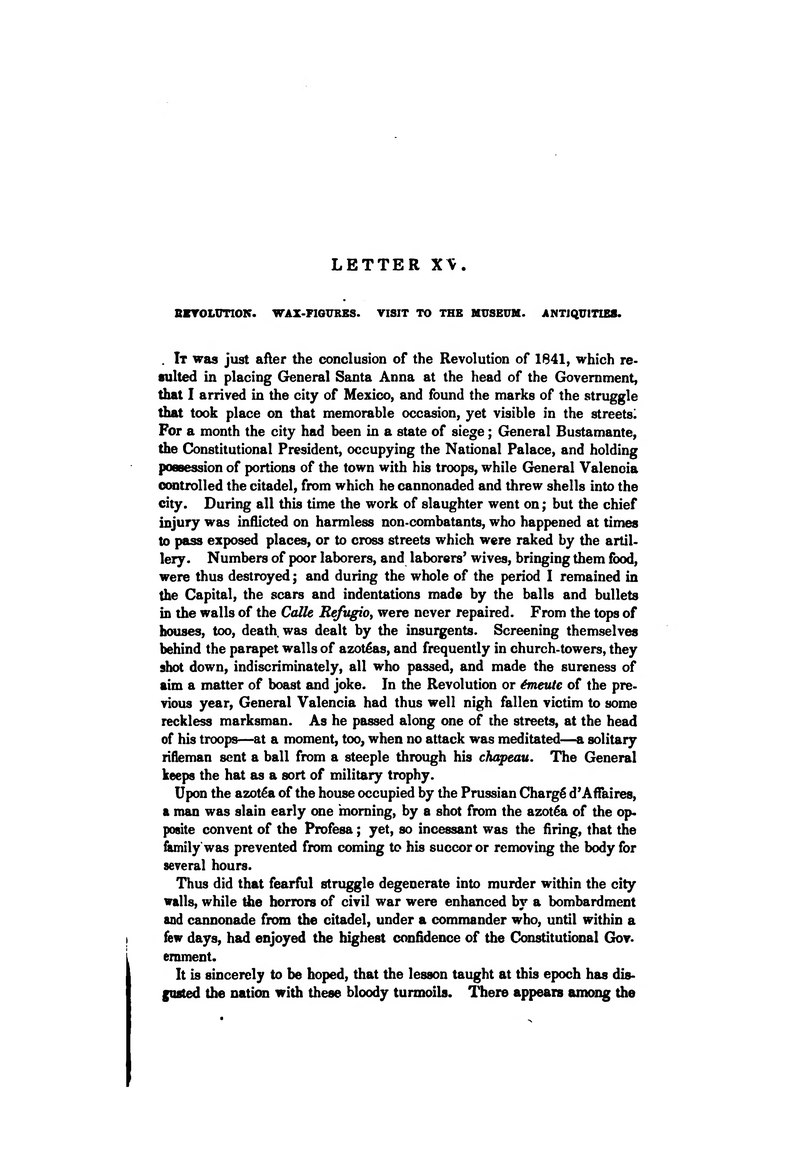LETTER XV.
REVOLUTION. WAX-FIGURES. VISIT TO THE MUSEUM. ANTIQUITIES.
IT was just after the conclusion of the Revolution of 1841, which resulted in placing General Santa Anna at the head of the Government, that I arrived in the city of Mexico, and found the marks of the struggle that took place on that memorable occasion, yet visible in the streets. For a month the city had been in a state of siege; General Bustamante, the Constitutional President, occupying the National Palace, and holding possession of portions of the town with his troops, while General Valencia controlled the citadel, from which he cannonaded and threw shells into the city. During all this time the work of slaughter went on; but the chief injury was inflicted on harmless non-combatants, who happened at times to pass exposed places, or to cross streets which were raked by the artillery. Numbers of poor laborers, and laborers' wives, bringing them food, were thus destroyed; and during the whole of the period I remained in the Capital, the scars and indentations made by the balls and bullets in the walls of the Calle Refugio, were never repaired. From the tops of houses, too, death, was dealt by the insurgents. Screening themselves behind the parapet walls of azotéas, and frequently in church-towers, they shot down, indiscriminately, all who passed, and made the sureness of aim a matter of boast and joke. In the Revolution or émeute of the previous year, General Valencia had thus well nigh fallen victim to some reckless marksman. As he passed along one of the streets, at the head of his troops—at a moment, too, when no attack was meditated—a solitary rifleman sent a ball from a steeple through his chapeau. The General keeps the hat as a sort of military trophy.
Upon the azotéa of the house occupied by the Prussian Chargé d'Affaires, a man was slain early one morning, by a shot from the azotéa of the opposite convent of the Profesa; yet, so incessant was the firing, that the family was prevented from coming to his succor or removing the body for several hours.
Thus did that fearful struggle degenerate into murder within the city walls, while the horrors of civil war were enhanced by a bombardment and cannonade from the citadel, under a commander who, until within a few days, had enjoyed the highest confidence of the Constitutional Government.
It is sincerely to be hoped, that the lesson taught at this epoch has disgusted the nation with these bloody turmoils. There appears among the

